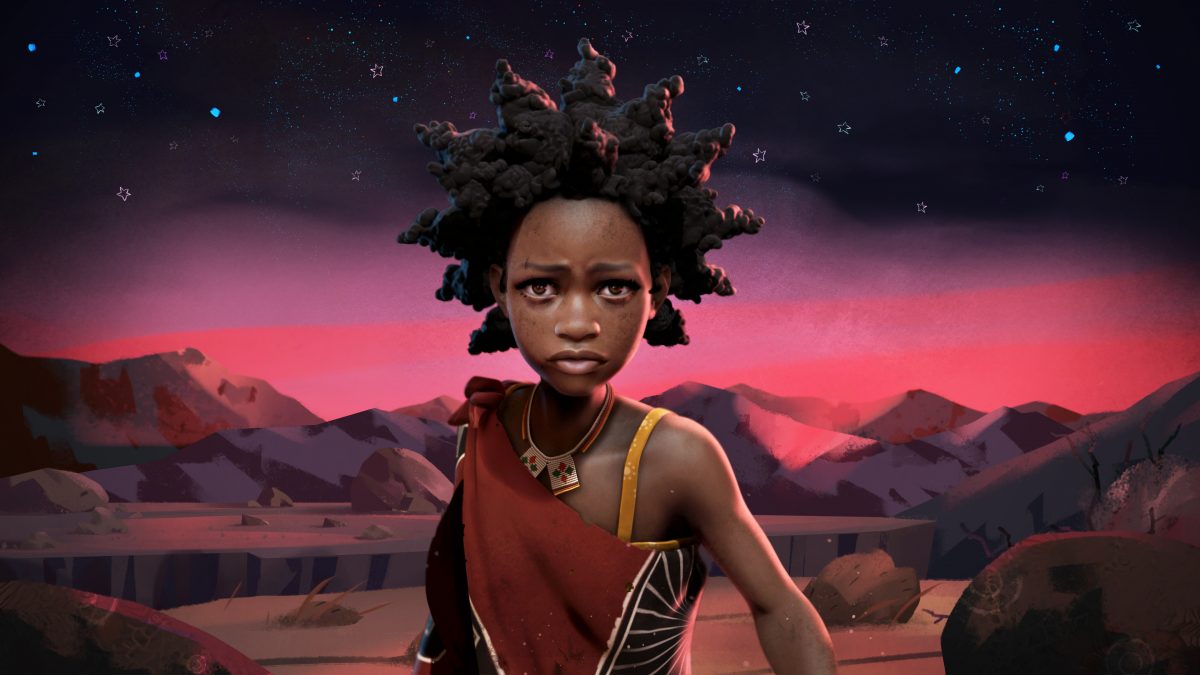Liyana Finds Hope and Healing in the Power of Storytelling
The films weaves animation and documentary film together for a truly unique experience.

Every culture in the world has their own fairy tales, stories handed down from generation to generation. These myths often serve as the origin story of a people, or as lessons to guide and educate the children of the community. But what happens when that childhood is cruelly ripped away, through trauma and hardship and violence? Where are the stories for those children?
Liyana explores the therapeutic properties of storytelling and myth-making in an orphanage in Swaziland. There, a group of young children work with acclaimed South African storyteller Gcina Mhlophe to craft a folk tale about a young girl, Liyana. After Liyana’s parents die of HIV/AIDS, her younger twin brothers are kidnapped during a brutal robbery. This sets Liyana on a hero’s journey as travels through the countryside, battling fierce creatures and cruel men to rescue her brothers.
Swaziland, a small landlocked country in South Africa, has one of the highest HIV infection rates in the world. With an estimated 27% of adults living with HIV, the disease has had devastating effects on the country, leading to tens of thousands of children orphaned from the disease.
The Swazi children collaborated on creating the story, which is then beautifully animated by artist Shofela Coker. The film is directed by married team Aaron and Amanda Kopp. Aaron had previously worked on The Hunting Ground, an Academy Award nominated documentary about sexual assault on college campuses.
Aaron, who grew up in Swaziland, was inspired to make the film after seeing the media portrayal of Africa in the U.S. In a released statement, he said “In part, LIYANA is an effort to tell a different kind of African story – a story designed to cultivate respect and hope rather than pity and guilt … We realized that asking them to revisit traumatic memories in front of a camera was not something we wanted to do. Films about the hardships faced by Africans have been made before.”
The animation of Liyana’s story is juxtaposed with images of the children in the orphanage: together they complete chores that help sustain the orphanage, they play, and they build a makeshift family. Despite the devastating circumstances, the children remain hopeful, and the storytelling project becomes a way for them to process and deal with their shared trauma.
Executive producer Thandie Newton said of the film, “It is one of the purest and most powerful examples of the importance and purpose of storytelling.” She continued, “It’s horribly rare to have African stories written by Africans, let alone African children. Stories like ‘Liyana’ make us realize that an orphan from rural Africa has the same dreams, imagination, hopes and potential as a more privileged child living in New York or Tokyo. ‘Liyana’ compels me to want to do everything I can to close the gap, and it will for audiences everywhere.””
(via USA Today, image: Abramorama)
Want more stories like this? Become a subscriber and support the site!
—The Mary Sue has a strict comment policy that forbids, but is not limited to, personal insults toward anyone, hate speech, and trolling.—
Have a tip we should know? tips@themarysue.com